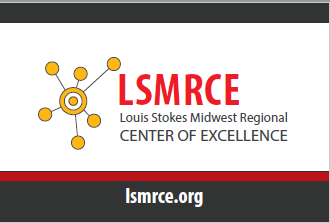 On Sept. 19, the National Science Foundation announced awards for six Louis Stokes regional centers of excellence, or LSRCEs, including the Midwest center, of which Fermilab is a member.
On Sept. 19, the National Science Foundation announced awards for six Louis Stokes regional centers of excellence, or LSRCEs, including the Midwest center, of which Fermilab is a member.
Having recently joined the LSRCEs, the Department of Energy’s Fermi National Accelerator Laboratory is now a part of a vibrant network that supports the recruitment and retention of minority undergraduate and graduate students studying science, technology, engineering and mathematics (STEM).
The centers will conduct broadening participation research and STEM implementation activities that lead to degree completion for minority students traditionally underrepresented in the STEM marketplace. The goal is to broadly disseminate successful practices to ensure that students underrepresented in STEM can compete in today’s job market.
“It’s an honor to be a collaborative partner of the Midwest Louis Stokes regional center of excellence,” said Fermilab Talent Acquisition, Diversity and Inclusion Manager Sandra Charles. “As a regional and national treasure for science research, Fermilab is committed not only to promoting STEM education, but also to promoting it to students from all backgrounds, drawing people who, historically, have not been encouraged to pursue scientific research.”
The Louis Stokes Alliances for Minority Participation program in NSF’s Human Resource Development Division funds the centers. LSAMP addresses STEM degree completion for traditionally underrepresented minorities who participate in the program — primarily at the undergraduate and post-baccalaureate levels.
“With national news reporting that more than 2 million science-related jobs remain unfilled, NSF views broadening participation to achieve workforce diversity as a key driver for the nation’s economic productivity and societal well-being,” said Jermelina Tupas, acting division director of NSF’s Human Resource Development Division.
Eleven collaborative awards will go to the six centers, which are in the eastern, southeastern and midwestern regions of the nation and the U.S. Virgin Islands. The new awards range from $1.5 million for 36 months to $2.5 million for more than 60 months.
Two- and four-year institutions, including historically black colleges and universities, Hispanic-serving institutions, and tribal colleges and universities, received center awards, as well as majority-serving institutions and institutions in states that participate in NSF’s Established Programs to Stimulate Competitive Research. There also are partnerships with other federal agencies, including NASA and the Department of Energy.
Additionally, the LSRCEs received funding from the NSF INCLUDES program — one of NSF’s “10 Big Ideas for Future NSF Investment” — to engage the broader STEM community in the development of the NSF INCLUDES National Network. NSF INCLUDES also recently issued new awards.
The activities of the LSRCEs contribute to the NSF INCLUDES National Network through its coordination hub activities.
The other designated members of the Midwest regional center are Chicago State University, Indiana University, Ohio State University and Purdue University Indianapolis.



